Aniccā vata sankhārā
Uppādavaya dhamminō
Uuppajjitvā nirujjhanti
Tesaṁ vūpasamō sukhō
Whenever Buddhist funeral rites are performed it is customary the Buddhist monks recite the above Pāli stanza reflecting on the impermanence of all things conditioned as they bestow merit on the departed one. While the grief-stricken family members keep pouring water to a receptacle until it overflows, the monks recite;
Yathā vārivahā pūra
Paripūrenti sāgaraṁ
Evameva ito dinnaṁ
Petānaṁ upakappati
Just as rivers that are full
flow and fill up the ocean,
So too what has been given here
is of benefit to the departed.
No other religious leader, teacher or philosopher has ever taught the reality of life – impermanence. It is the sublime truth. It is the crux of Buddhism. Everything in the world arises, changes, and perish. Nothing ever remains constant for even a single moment.
The Lord Buddha’s religious mission conducted out of compassion to humanity lasted forty-five years before he passed away at the age of Eighty at the Upavattana Sāla grove in Kusināra.
Venerable Ananda Thero was not happy that Gautama Buddha chose Kusināra – a mere outpost of the province in the jungle’s midst – as the place for his final passing away; parinibbāna. He appealed for Buddha to choose one of the great cities, such as Campa, Rajagaha, Savatthi, Saketa, Kosambi, and Benares as the place for his final passing away claiming that in these cities there were many well-to-do aristocrats, brahmins, and householders who are devoted to the Buddha and would love the opportunity to pay their final respect to the Buddha and perform the rites of the Buddha’s passing away.
In response to this appeal by Venerable Ananda Thero the great teacher Gautama Buddha explained why he preferred Kusināra as his final resting place and taught the Mahāsudassana sutta revealing a past life of the Buddha as a Universal Monarch by the name Mahāsudassana.
“Ananda, once upon a time there was a king named Mahāsudassana whose dominion extended to all four sides, with the four great oceans as its boundaries and who achieved stability in the country. His capital was this Kusinārā, which at the time was named Kusāvatī. It stretched for twelve yojanas from east to west, and seven yojanas from north to south. The royal capital of Kusāvatī was successful, prosperous, populous, full of people, with plenty of food. It was just like Āḷakamandā, the royal capital of the gods, which is successful, prosperous, populous, full of spirits, with plenty of food.
Kusāvatī was never free of ten sounds by day or night, namely: the sound of elephants, horses, chariots, drums, clay drums, arched harps, singing, horns, gongs, and handbells; and the cry, ‘Eat, drink, be merry!’ as the tenth.
King Mahāsudassana possessed seven treasures. The heavenly wheel treasure which helped him become a Universal Monarch by triumphing over all lands surrounded by the ocean. The elephant treasure; an all-white sky-walker with psychic power, touching the ground in seven places, a king of elephants named Uposatha, whom the King would mount in the morning and traverse the land surrounded by ocean before returning to the royal capital in time for breakfast. Similarly, the horse-treasure; an all-white sky-walker with psychic power, with a head of black and a mane like woven reeds, a royal steed named Thundercloud. The jewel treasure; a beryl gem that was naturally beautiful, eight-faceted, well-worked, transparent, clear, and unclouded, endowed with all good qualities. And the radiance of that jewel spread all-round for a yojana. The woman-treasure; an attractive, good-looking, lovely woman, of surpassing beauty. She was neither too tall nor too short; neither too thin nor too fat; neither too dark nor too light. She outdid human beauty without reaching divine beauty. The householder-treasure who had the divine eye by which he saw hidden treasure, both owned and ownerless. The counselor-treasure; an astute, competent, and intelligent person capable of getting the King to appoint who should be appointed, dismiss who should be dismissed, and retain who should be retained.
Also, King Mahāsudassana possessed four blessings. He was attractive, good-looking, lovely, of surpassing beauty, more so than other people. This was the first blessing. Furthermore, he was long-lived, more so than other people. This was the second blessing. Moreover, he was rarely ill or unwell, and his stomach digested well, being neither too hot nor too cold, more so than other people. This was the third blessing. The fourth blessing being, he was as dear and beloved to the brahmins and householders as a father is to his children. And the brahmins and householders were as dear to the king as children are to their father.”
Then Buddha went on to give an exhaustive account of all the fortunes and treasures the king possessed which was simply anything and everything a person could hope for and much more, after all, he was the Universal Monarch, the richest, the most powerful and most esteemed person on earth.
One day it dawned on the king the reason he was now so mighty and powerful was that in his past lives he had practiced three wholesome deeds; generosity, virtue, and sense restraint.
Knowing this and seeing the futility of sense pleasures the wise king chose to live in seclusion and practiced the four Brahma-viharas: loving-kindness, compassion, altruistic joy, equanimity and dwelled in the four jhanas. Then, after many years, many hundred years, many thousand years had passed, his beloved Queen Subhadra approached the king who was now in his deathbed.
Then Queen seeing the king’s faculties are still so very clear, and the complexion of his skin is pure and bright, thought ‘Let him not pass away!’ and said to him, ‘Sire, you have 84,000 cities, with the royal capital of Kusāvatī foremost. Arouse desire for these! Take an interest in life!’ And she likewise urged the king to live on by taking an interest in all his abundant possessions.
When the queen had spoken, the king said to her, ‘For a long time, my queen, you have spoken to me with loving, desirable, pleasant, and agreeable words. And yet in my final hour, your words are undesirable, unpleasant, and disagreeable!’
‘My Queen, I would rather hear you say like this, “Sire, we must be parted and separated from all we hold dear and beloved. Don’t pass away with concerns. Such concern is suffering, and it’s criticized. Sire, you have 84,000 cities, with the royal capital of Kusāvatī foremost. Give up desire for these! Take no interest in life!”’ And so on for all your possessions.
When the king had spoken, Queen Subhaddā cried and burst out in tears. Wiping away her tears, the queen said as the king pleased, urging him to give up the desire for all his possessions and die in peace without concern.
Thus, Buddha reflecting on the past life of luxury he lived as King Mahāsudassana ended his narration with the following powerful note.
“See, Ānanda! All those conditioned phenomena have passed, ceased, and perished. So impermanent are formations, so unstable are formations, so unreliable are formations. This is enough for you to experience revulsion towards all formations, enough to become dispassionate towards them, enough to be liberated from them.
Six times, Ānanda, I recall having laid down my body (passes away) at this very place in Kusinārā as a Universal Monarch, a just and principled king, at which time my dominion extended to all four sides, I achieved stability in the country, and I possessed the seven treasures. This will be the seventh occasion I lay my body down in Kusinārā. But Ānanda, I do not see any place in this world with its gods, Māras, and Brahmās, this population with its ascetics and brahmins, its gods and humans where the Tathāgata, the Blessed One would lay down his body for the eighth time.”
Then Gautama Buddha, our Teacher, went on to say the Pāli verse mentioned at the beginning of this article, which carries the meaning:
“Indeed, all formations are impermanent,
their nature is to rise and fall;
having arisen, they cease;
their ultimate cessation is true bliss.”
By Premasara Epasinghe
Recipient of Presidential National Honours – 2017

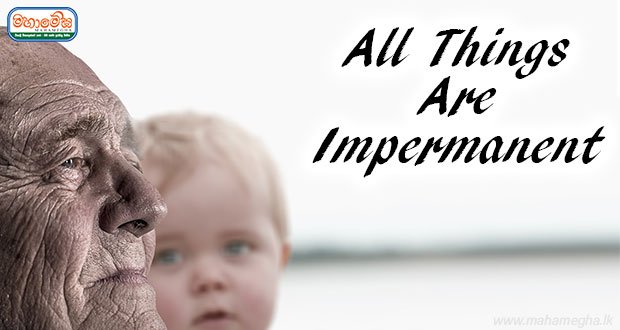


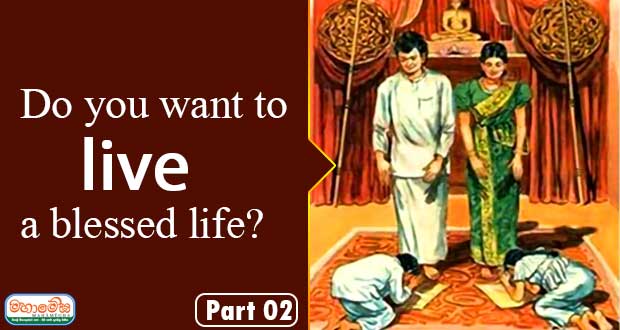
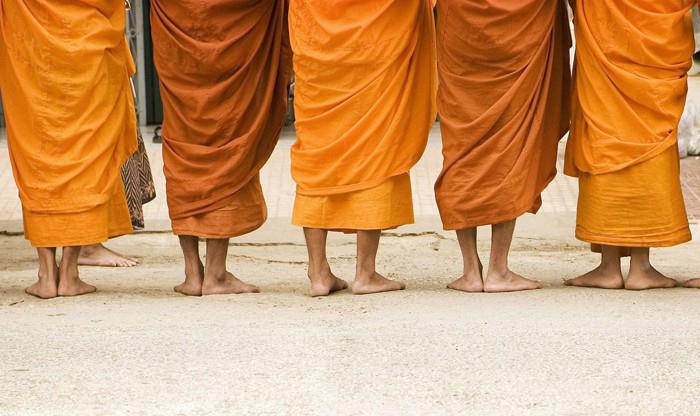




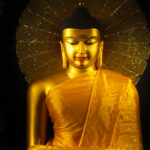


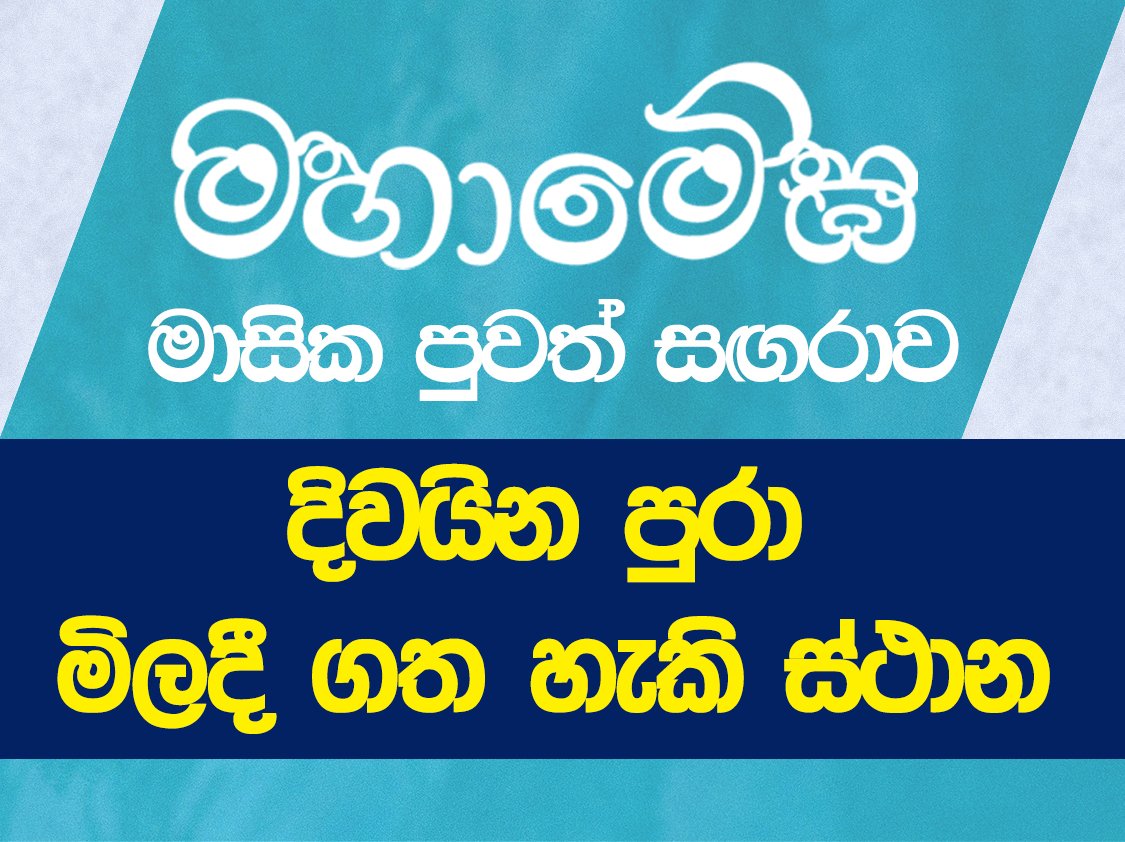
Recent Comments